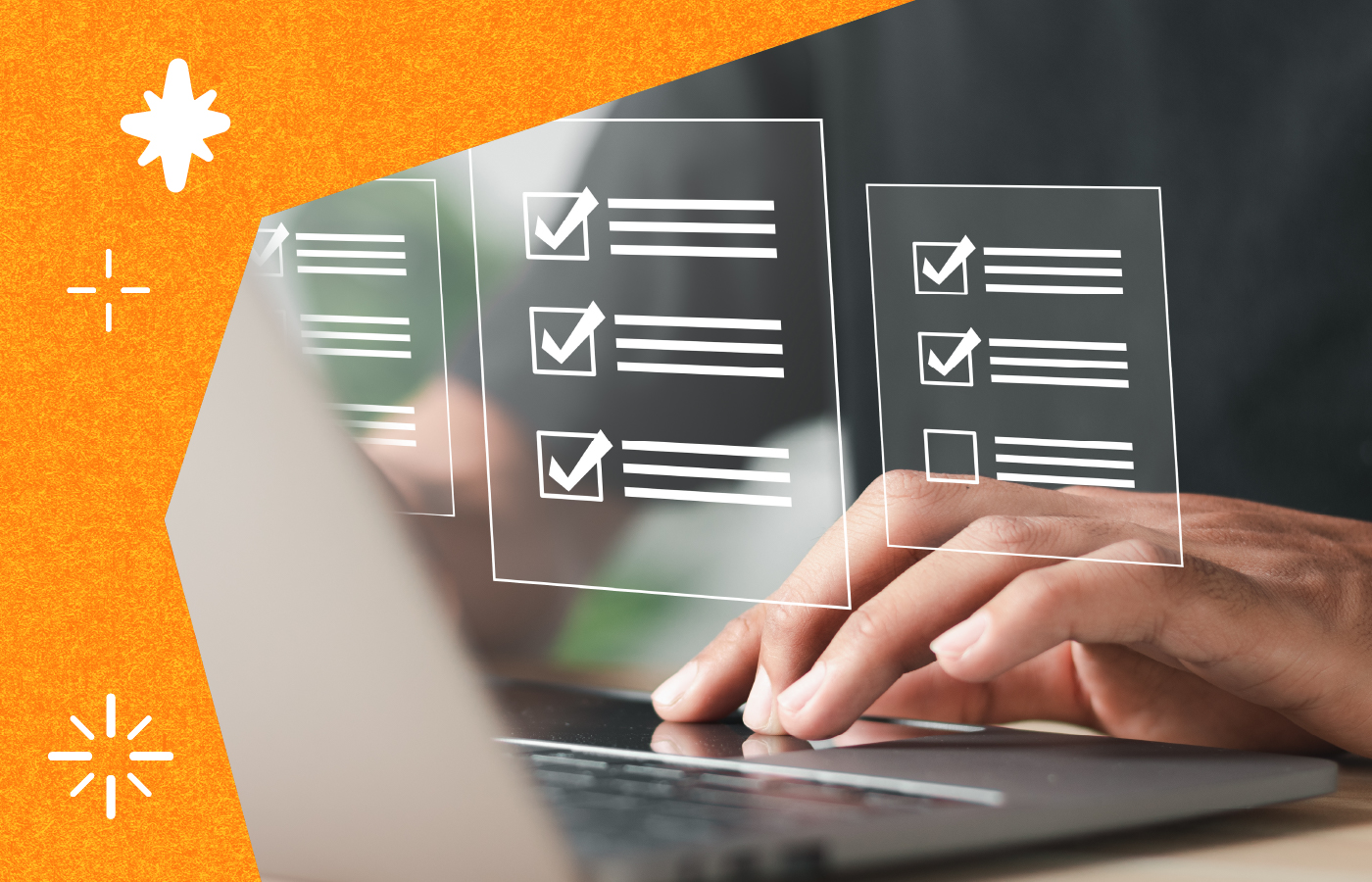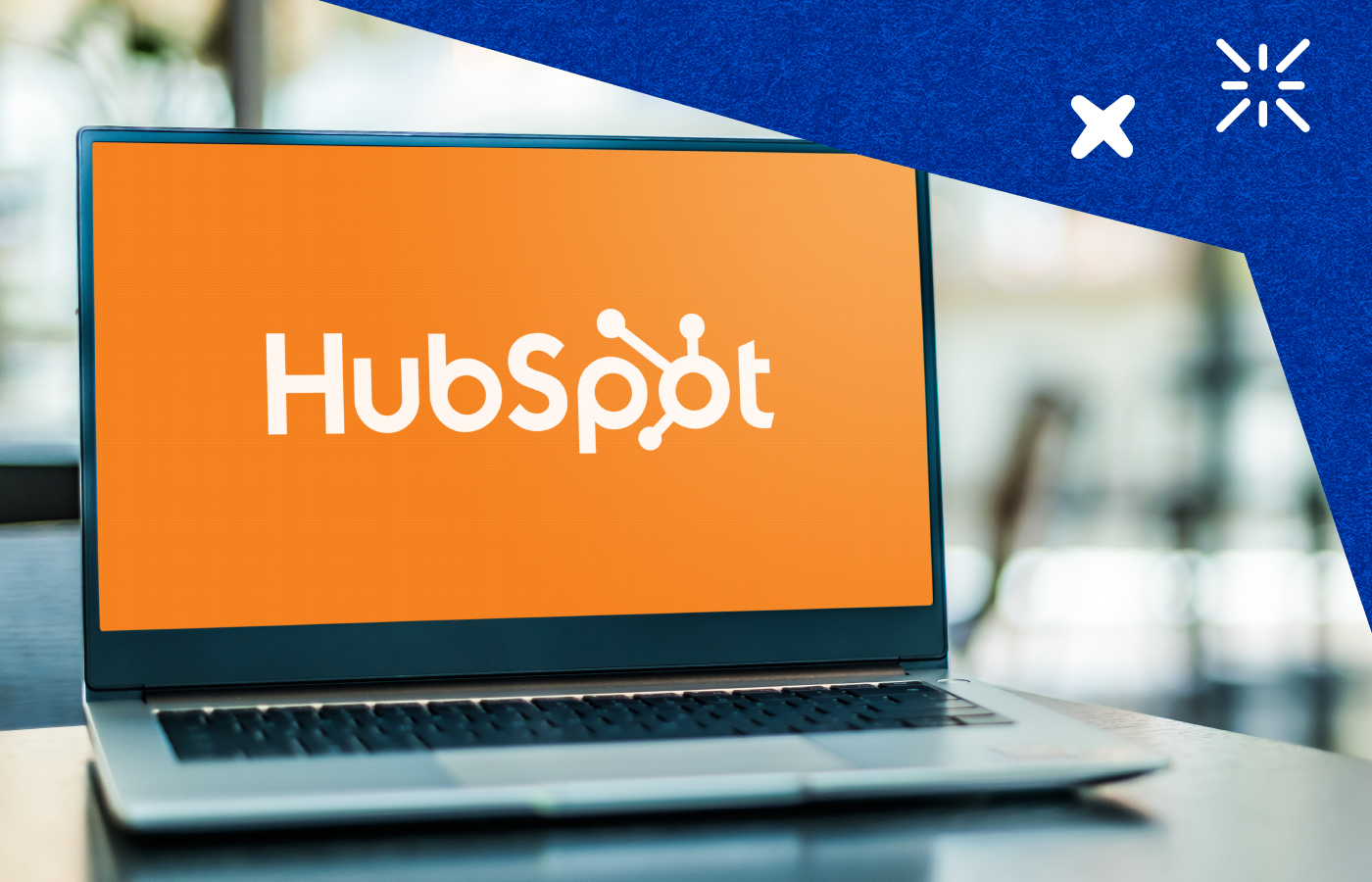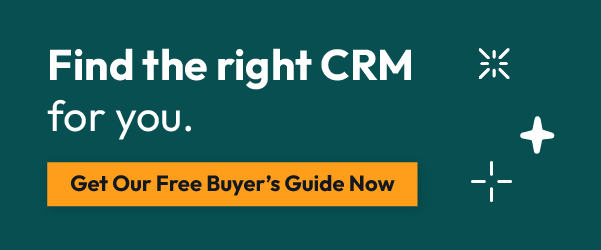The ultimate guide to CRMs
Are you familiar with Customer Relationship Management (CRM)? This page is for you if you're not 100% sure what it is. Keep scrolling to take a deep dive into everything there is to know about CRMs.

Struggling to get your business organized? Want happy customers, a productive team, and reliable data? A Customer Relationship Management (CRM) system might be just what you need.
Keep scrolling to find everything you need to know about what CRMs do, why they're essential for success, how much they'll cost, and more. By the end of this page, you'll be able to make an informed decision on whether a CRM is right for your business!
What is a CRM?

If you need clarification on what a Customer Relationship Management (CRM) system is, you're not alone! Let us show you the ropes. CRMs are great tools that can help maximize customer satisfaction and streamline business processes - but how do you know when it's time to invest in one? We'll explore all of this, so your business has everything needed for success!
A CRM is essential for providing your customers with an enjoyable, consistent experience across all points of contact. It's the backbone that allows you to create meaningful interactions and ensure a smooth journey from start to finish.
If you're looking for an effective way to manage customer relationships - a CRM may be your solution. This powerful software is designed to streamline the process of tracking information and interactions between your company and customers.
How your team can benefit
From sales teams analyzing past campaigns, marketing groups automating parts of their cycle, or customer service departments keeping track - a unified CRM platform helps keep everything running smoothly. CRMs allow multiple users from different areas to all work together towards one common goal: enhancing the total customer experience & loyalty. Implementing a CRM could boost retention rates and improve communication within your organization.
By tracking information from interactions between customers and your organization, you can get a complete picture of their needs and how best to serve them. Plus, with multiple users able to access this data in real-time through different departments like Sales & Marketing or Customer Service - communication across teams becomes much more manageable.
With all its features combined, using a CRM puts you well on your way towards boosting loyalty rates while improving overall customer experience significantly.
How a CRM can help
Streamlining your business systems can make all the difference in efficiency and productivity. A CRM is a perfect way to do this — it combines critical parts of running a company, such as analytics, contacts, emails, sales data, and more, into one system, so you don't have to search for them elsewhere.
Think about it: with everything housed under one roof, you're saving time AND money! You can ditch the wasted efforts of hopping back and forth between different programs and allow your team to start working right away on what's most important.
Are CRMs challenging to use?
Excel and Google Sheets might have you feeling prepared - but why not step up your game with a CRM? There's no need for prior experience when making the jump, as many CRMs are designed to be easy to navigate.
For an unparalleled user experience that'll set you on solid footing from the get-go, we suggest HubSpot! With training available as well as excellent customer support, they guarantee quick onboarding without sacrificing top-of-line service.
Can someone help me manage my CRM?
Getting on board with a new CRM can be daunting for you and your team. Make the transition smoother by enlisting an expert from within the CRM community who can provide invaluable guidance on best practices, tips & tricks, etc. If you're looking to make wise choices about selecting a partner for this critical endeavor, check out our article on choosing the right CRM partner for your business.
Make things easier for yourself
Keeping your team organized and on track is essential for successful customer relationships. With a CRM, you can achieve better efficiency in reaching goals, improved communication with customers, and more streamlined organization of resources without wasting precious time or energy. Get the most out of every moment thanks to this indispensable tool!
Why do I need a CRM?

Are you struggling to scale your business? Whether it's chaotic processes in place, a disorganized team, or unreliable data being used - a Customer Relationship Management (CRM) system can be the answer to your problems. Imagine having all of your data and processes consolidated in one convenient place. You save money by eliminating needless subscriptions, collaborate more effectively with customers, employees, and suppliers - plus gain more significant insights into how well you're doing at any given moment.
Automation
If you're tired of feeling like time is slipping away every day, CRMs help eliminate mundane tasks and free up your schedule through automation. Do you have weekly or monthly recurring meetings? With automation tools, you simply arrange them ahead of time once and let the CRM take care of the rest. You'll also have the power to plan and pre-schedule social media posts so that consistent content creation isn't taking over all your hours.
Don't forget about email outreach options, too. With contact segmentation and reliable customer data, a CRM will ensure emails efficiently reach customers - no matter what size your business is. Plus, with data synchronization, you can learn which emails do best with your audience. Investing in this single tool will give your business the boost it needs!
Analytics
Knowing what your audience likes will help you shape your strategies for the better. Unlock the power of your CRM by utilizing analytics to gain key insights into how, when, and why customers are engaging with you. Spot sales opportunities quickly based on data-driven trends and use this newfound knowledge to create tailored content that caters specifically to a select target audience - increasing engagement rates in no time! From your website, marketing emails, social engagement, and sales efforts all in one place will improve reporting and centralize all your data! It’s a win/win!
Contact management
With a CRM, you can organize your contacts into various groups to ensure they receive messages tailored specifically to their needs. This helps serve customers better and sends the message that they are being heard and valued.
Furthermore, unifying communication across multiple platforms such as websites, emails, phone calls, and social media channels helps messaging stay consistent, keeping everyone in tune with each other.
Give it a try
Ready to take your business to the next level with growth? Get ahead of the game and start unlocking success now by leveraging a CRM! Allow for seamless collaboration across teams, eye-opening analytics that provides more visibility into operations, and automated tasks, so you have time to focus on what matters most.
When to start using a CRM

Being a small business owner is no easy feat! With so many different tasks to juggle, it takes a lot of work to stay organized and keep track of all your leads.
Investing in CRM software can be incredibly beneficial for you – they help streamline processes and ensure everything flows smoothly. In this blog post, we'll go over the right time to start using a CRM and three top choices available today - so don't miss out!
Know the signs
1. If your information is often unreliable.
Keeping customer data scattered within multiple systems and records can create a tremendous amount of headaches for your business. Without access to the complete picture, teams work with incomplete information, leading to inconsistent experiences and unhappy customers.
Fortunately, you don't have to settle for this; by utilizing an effective CRM in place, it will help keep all necessary info up-to-date automatically - saving time & energy while ensuring everyone is always on the same page!
2. If your teams lack communication.
A lack of cross-team alignment can cause significant issues, and it may be the result of separate systems in use by different departments. Independent sales, marketing, and services systems limit visibility into each other's objectives and make transitioning between lifecycle stages more challenging than necessary. Identifying a unified approach, such as using a CRM, is key to getting teams working together cohesively!
3. If you depend on manual reporting.
Reports provide a clear window into how your sales and marketing teams are performing, allowing you to identify areas of improvement that can help advance campaigns, perfect processes, and enhance customer relationships. But if reports lack the information or insights necessary for success, they won't be doing any good.
With manual processes like spreadsheets and legacy systems, your teams spend valuable time on tedious data entry tasks. Not only that, but human error can easily slip in to create an inaccurate picture of customer information — leaving you with many blind spots!
Fortunately, the right CRM solution helps keep your reports accurate by automatically capturing key metrics, giving you reliable intelligence aligned with objectives to tailor campaigns and better serve customers.
Our favorite CRMs
With so many CRM solutions available, it can be overwhelming to decide which one is right for your business. That’s why we’ve compiled a few of our favorite CRMs to help you get started on the right path.
HubSpot
HubSpot offers the perfect solution for any business aiming to expand. It boasts a range of sales, marketing and customer service features that will let you customize your system as your enterprise grows. With loads of integrations with other essential tools, everything works together harmoniously! And if all this wasn't enough reason to take advantage? HubSpot's CRM is free, forever. So why wait - get started on taking steps towards success today by trying it out today!
Salesforce Customer 360
Salesforce Customer 365 is one of the most popular CRMs out there. Many large companies such as L'Oréal and GE Appliances utilize this powerful CRM. The downside? Despite it’s popularity and potential, the user interface can be complex for the average user. You'll likely need to make room in your budget to recruit a Salesforce expert to help build any customizations.
Zoho
If you're looking for a free CRM, HubSpot and Zoho are great options! While HubSpot is optimized for user-friendliness, Zoho offers more features to expand with as your business grows. However, keep in mind that these can be complex to integrate, so make sure you have the correct support system ready if needed!
Jump right in!
In the end, finding a CRM that fits your budget and needs can be daunting, but the payoff is worth it. If you find yourself struggling more often than not, a CRM can be your solution to quelling the chaos.
How a CRM can grow your business

Are you looking to grow your business? Whether you're a small business owner just starting out or an established marketer, implementing a Customer Relationship Management system (CRM) should be top of mind.
By connecting all aspects of customer interaction, a CRM can reveal invaluable insights that help drive deeper engagement and more substantial sales growth than ever before.
In this blog post, we'll discuss why investing in a CRM is essential for any business looking to maximize its reach in today's competitive environment.
Increasing conversion rates
Unlocking sales potential often starts by understanding your leads, where they are in their journey to becoming a customer, and providing the right content when it matters most.
Most leads don't convert right away. With 75% of your prospects requiring nurturing, it's essential to be smart about how you're monitoring their journey - a CRM can help! This tool allows both sales and marketing teams to provide relevant content at the optimal time throughout each buyer's process: ensuring timely follow-ups with highly personalized messages that'll result in more conversions down the line.
Increasing revenue
Are your salespeople being held back? A recent CSO Insight Study found that the majority of their time was spent on non-selling activities, like qualifying leads and forecasting. Thankfully, those tasks can be offloaded by investing in a CRM - freeing up more time to focus solely on selling! Doing so yields big rewards; with improved performance comes greater potential for revenue growth within your business.
Improve customer lifetime value
Did you know CRMs help maximize your customer lifetime value? A CRM provides the ability to personalize experiences, upsell and cross-sell products based on customers’ needs, and ultimately increase your revenue. It's an effective way to give back to those who support you - by providing them with tailored solutions that keep them coming for more. Plus, it pays off: when each customer brings increased profits over their life cycle – everyone wins!
Decrease the cost of gaining new customers
Your customers can become your best salespeople when you leverage a CRM system. CRMs offer an effective and cost-saving way to turn your happy customers into brand ambassadors.
You can utilize automation features to ensure that success stories, reviews, and referrals are collected, reducing the cost of gaining new customers or driving further revenue growth.
As a bonus, tedious tasks such as emailing & follow-ups become effortless with automated processes!
Boost your bottom line
Implementing a CRM system is a great way to power up your business. It can give employees the tools they need to be as productive and engaged in their work as possible, automating tedious tasks so teams can focus on making an impact with customers at every stage of the sales lifecycle.
By giving team members more efficient processes for managing leads and customer relationships, you’ll see increased employee effectiveness, leading directly to higher profits - something everyone wants! Streamlining operations through utilizing a CRM could just be what you need if you're looking for ways quality results from your organization.
Set goals and get started
Finding the right CRM for your business is easier to do when you’re aware of your needs. Before anything else, take a step back and recognize areas you’d like to improve. Once you’ve set your short- and long-term goals, ensure they align with what your CRM offers.
Feeling stuck? Take some time to review our favorite CRMs here. If you're strapped for time or aren’t particularly tech-savvy, you can always call on a CRM partner to help you out.
How to get my team to use a CRM

Have you invested in a Customer Relationship Management (CRM) system, but notice that you’re the only one using it? You might be thinking, how can I get my team to use a CRM? Avoid the disappointment of investing time and resources into a CRM system that goes unused by your team.
We've got you covered with tips for getting everyone on the same page when it comes to taking advantage of this valuable tool! Take proactive steps now so that you can maximize efficiency, increase collaboration, and drive success together - all through your chosen CRM platform.
Come to a decision together
Making a decision on behalf of the team shouldn't be taken lightly. Make sure to involve your team every step of the way. Consider having everyone test out different options before settling on one and don't forget to review the pros and cons together - this will help ensure you all reach an informed decision that works for everyone's needs.
Allow your team an opportunity to express their honest opinions. Without your teammates' buy-in, they may not use any new system you decide upon. Consider taking a step back before committing; review each CRM's benefits alongside its drawbacks so that both sides can understand one another better when it comes time for implementation!
Make training accessible
To get the most out of your CRM, it's essential to make sure everyone on your team has an understanding and is comfortable with using it. Start at a basic level in onboarding training and work up from there. It’s also helpful to include a space where anyone can go back and review all of the trainings offered if needed.
Learning a new system can be tedious for employees, so it’s vital to emphasize the features that are beneficial for their position. Show how implementing these strategies via your chosen CRM will help them succeed!
Keep it simple
It’s easy to get overwhelmed when navigating something new. As you take your business to the next level, don't let a complicated CRM bog down everyone's progress. Simplicity is key - begin by acclimating with only the essential features of your system and gradually add on any extra processes or integrations as needed in order to reach goals more rapidly. In this way, learning how to use all that your CRM has to offer can be an easy journey for both newcomers and experienced users alike.
Stay positive
Foster an enthusiastic team atmosphere when introducing the new CRM by showcasing its capabilities and teaching others what you have learned about it. If any of your colleagues are struggling to get up to speed, lend a helping hand with constructive feedback and support. Whenever milestones or accomplishments occur, make sure that each individual's success is acknowledged - positive reinforcement will be more motivating than anything else!
Don’t hesitate
Don't let an opportunity slip away! Now is the perfect time to get your team in sync and utilizing a CRM. If you have yet to take that step, or need help getting started using one already at hand, successful onboarding can be achieved through good communication, appropriate training resources and creative motivation. Your team will soon become experts with a little coaching from you!
How to choose a CRM

Are you frustrated having to juggle nearly every aspect of your business? Do you need extra help but don’t want to hire another employee? There’s a way out of this mess; through the use of CRMs.
Customer relationship management (CRM) software is a must-have for any business that wants to manage and keep track of its customer data. It helps to improve customer service, increase sales conversions, and boost efficiency. In addition, CRMs also organize information, such as contact details, communication history, and sales data, into one central repository to better serve your customers.
However, choosing a CRM can be daunting. There are an overwhelming number of options out there, and it’s easy to get lost in the weeds when trying to decide which one is best for your business. But don’t worry! We’ll break down everything you need to know about choosing a CRM system so that you can make an informed decision.
Do Your Research
Before you decide which CRM solution is right for your business, you must do research first. Make sure that you understand what a CRM does and how it works. Then, meet with stakeholders and the main people who will utilize the CRM most to gain insight into their needs. From there, look at different CRMs and compare features, pricing, and customer service options. Additionally, look into current platform users' reviews to see their experience with the particular software.
Understand Your Needs
Not all CRMs are created equal; each one will provide different features and capabilities that may or may not fit your business's needs. Consider what features you want from a CRM and determine if those features are available in the platform you're considering. For example, if you need a tool that integrates with other software programs such as QuickBooks or Salesforce, make sure that the solution offers this capability before committing to it.
Consider scalability
Choosing a CRM system that can grow with your company as it expands is important. Some systems are designed with small businesses in mind, while others offer more advanced features for larger enterprises. Consider where your company is now and where it will be in the future before making a decision on which CRM provider to go with. You want to ensure you won’t outgrow the system too soon or be stuck paying for unnecessary features.
Assess Your Budget
Once you have identified some potential CRMs and narrowed down the list, it's time to consider budgeting constraints. Many CRM providers offer plans on various levels that vary depending on the features offered and the number of users included in each plan. Make sure you have an accurate understanding of all costs associated with implementing and using the system so there are no surprises down the line — including monthly subscription fees, additional user fees, setup fees, training fees, etc.
If cost is an issue, consider looking into CRMs that offer free versions to save money while still getting access to powerful tools like marketing automation or reporting capabilities. Some of our favorite free CRMs include HubSpot and Zoho.
Get started now
Selecting the right CRM solution for your business can be intimidating, but by researching different platforms and understanding what features are important for your unique needs, it is possible to find an effective solution that meets all of these criteria without breaking the bank! Once you have identified which CRM best suits your needs, setting up and using it should be straightforward. Soon enough, you will wonder how you ever managed without one.
Key features of a CRM

Looking to manage your customers better and keep them coming back? Want to do this without hiring more staff? Investing in a customer relationship management (CRM) system could be the perfect solution - but it's important to know what features you should look for!
Keep reading to discover some of the key components that go into finding an effective CRM. Make sure these criteria are met when considering which one is best suited for your business needs.
Scalability
One of the most important features of any CRM system is its scalability. When choosing a CRM, make sure that it’s able to grow with your business as it expands. Does it provide options for adding on more storage or have different features available if your company was to grow? If the system is not designed to be scalable, then it will become outdated and ineffective very quickly.
Automation
Automation is another key feature of a good CRM system. Automation can reduce time-consuming tasks like data entry, email marketing, social media campaigns, and lead generation - leaving you more resources to focus on core strategies. Automation also ensures accuracy and reduces errors, which helps keep your data organized and up-to-date.
Reporting & Analytics
A good CRM should also provide reporting and analytics capabilities to easily track how your customers interact with your business or product. This kind of insight can help you identify trends in customer behavior and make informed decisions about improving customer experience or targeting new markets for growth.
Management
Management is another essential feature of any CRM system. The right management tools enable you to organize, monitor, and analyze customer and campaign data in real-time to ensure that sales goals are met while keeping costs low.
User-friendly Interface
When selecting a CRM system, make sure that it has an intuitive user interface that makes it easy for all users – from beginners to experts – to access the data they need quickly and efficiently. The more complex a user interface is, the harder it will be to get everyone to use it.
Integrations and customizations
Integrations are another important feature of any good CRM system because they allow you to connect your existing systems to the new platform without having to start from scratch or rewrite code. By integrating with other software, websites, or accounting systems you can make sure information flows effortlessly throughout your organization - keeping everyone on the same page.
It’s also important that the system you choose be customizable so that it can be tailored to meet your specific needs and those of your customers or clients. Some CRMs have more complex systems than others, so ensure you get one that matches your technical abilities.
Security
Security is an absolute must when choosing a CRM system – after all, this is where all of your valuable customer data will live! Make sure the platform you choose has robust security protocols to protect you and your customers from potential threats like cyberattacks or identity theft.
Communication
Finally, communication tools are essential for helping businesses stay connected with their customers over time by providing support services such as email campaigns or live chat functions. Not only will your customers be affected, but your teams will also need to be able to communicate with one another easily to reduce confusion and potential errors.
Flexible Pricing
Last but not least, make sure the pricing structure of any potential CRMs fits within your budget before making any final commitments! It’s helpful if there are multiple tiers available depending on what services best fit with your current needs so that you don’t end up paying for features you won’t use or getting stuck with an expensive bill every month!
Start now
A good CRM will help streamline your day-to-day operations while providing valuable insights into your customers’ buying habits and preferences.
By automating tasks like emailing customers after purchases or generating reports on sales activity, as well as providing tools for analyzing customer data, a CRM system will save time and money while ensuring that your customers always get the best possible service experience.
Investing in a quality CRM system is an investment worth making if you want to succeed in today’s competitive marketplace!
How much does a CRM cost

Customer relationship management (CRM) systems have become a must for businesses of all shapes and sizes. But with so many choices out there, it can be hard to decide which CRM is best for you — including how much it will cost.
In this blog post, we’ll discuss the different types of CRM pricing models, so you can make an informed decision when selecting a CRM for your business.
Per User
The per user model is the most common type of pricing used by CRMs. This means that you pay for each user who uses the software—this includes employees, contractors, and anyone else who needs access to the system. This type of pricing works well when there is a small team that needs access to the same features, as it allows businesses to tailor their package according to their specific needs while avoiding overpaying for features they don’t need.
Alternatively, a larger company may also benefit from this pricing structure since some CRMs offer discounts if you purchase licenses in bulk or commit to a longer-term contract.
Data Storage
Another type of pricing model used by CRMs is based on data storage usage. This means that you pay based on how much data you store in the system.
For example, if you use a lot of images or videos in your CRM, or have a large number of contacts in your database, then you’ll likely require more storage space.
This pricing model works best for larger organizations with more complex needs and higher amounts of data storage requirements. Some providers may offer tiered plans that offer different amounts of data storage at different rates; this way, you can select the plan that fits your budget and needs best.
Free Options
For those who are just getting started or have more basic needs when it comes to customer relationship management, there are several free options available that offer limited capabilities but still get the job done.
Some free options include HubSpot and Zoho, which provide basic contact management and sales tracking tools at no cost. Of course, these free systems don’t provide all of the bells and whistles of paid versions, but can be great starting points if you're just getting started with CRMs or want something simple and straightforward to use.
Try one out
Finding the right customer relationship management (CRM) for your business can often be tricky—especially when it comes to understanding pricing models. With this knowledge in hand, we hope that finding the perfect CRM has become easier for you! Good luck!
Free HubSpot CRM

Are you tired of being overwhelmed trying to keep up with multiple tools and programs to get through the day? Are you looking to simplify your tech stack but feel reluctant to change?
We hear you. It can be exhausting. Give yourself a break by implementing this single, free tool: HubSpot's CRM.
With this free CRM, you get access to many free tools that can unlock powerful insights into your contacts and create meaningful relationships on a larger scale. Remember that you'll use "lite" versions of their tools because this is their free version. If you see that certain features are more valuable to you than others, it may be worth investing down the line for the full version.
Keep reading to find out what tools are available with HubSpot's free CRM!
Tools for marketing
Email marketing
Email marketing with HubSpot just got easier. With bulk emails tested and optimized for different devices, you can create better emails faster using their drag-and-drop editor featuring personalization tokens. Plus, get up to 2000 email sends per month!
Reporting dashboard
Gain valuable insights into your sales, marketing, and customer service performance by accessing data from up to three interactive dashboards, each with 10 carefully-crafted reports. These dashboards provide an in-depth view of how well you're doing and where there is potential for improvement so that you can stay ahead of the game!
App Marketplace integrations
Unlock countless possibilities and make your everyday tasks easier by connecting your HubSpot account to hundreds of popular apps with the help of third-party integrations found in the App Marketplace.
Tools for sales
Meeting scheduling
Save yourself from emailing back and forth with contacts trying to coordinate a meeting. You can share your link that shows them available times so they can book appointments without the hassle! Get up to one branded HubSpot link, and make scheduling simple.
Forms
Make it easy for your customers to provide you with the critical contact info that will help make sure their experience is smooth and successful through the use of forms. Use forms from HubSpot - choose standalone, pop-up, embedded, or collected versions.
Company insights
Make the most out of your database with clear, actionable company insights. Let your sales team focus on what they do best - selling - without spending hours thumbing through spreadsheets to get all their information in one place. Keep in mind that not all companies are supported.
Deals
Make the deals process as easy and efficient as possible with HubSpot's ability to store, track and manage reports on deals. Keep your sales team on target by monitoring the progress of each deal accurately, then report results for maximum impact.
Tools for customer service
Conversational bots
Conversational bots can connect visitors to the correct representative and direct them toward the most suitable content. Get creative when customizing your bot by creating ticket requests, identifying qualified leads for follow-up, and scheduling meetings.
Ticketing
Say goodbye to unorganized customer queries! With ticketing, you can assign issues to the appropriate team members and keep track of them in a central location. Easily prioritize all incoming tickets for timely resolution - bringing helpful satisfaction to your customers.
Tools for automation
Contact management
Streamline your contact management with easy-to-use automated tools. Create custom views and run automatic actions, allowing you to efficiently handle your contacts' data in no time!
Email automation
Give your marketing a tailored touch! Harness the power of automated email nurturing to create segments and send personalized messages that genuinely connect with customers.
Form automation
Unlock the potential of automated emails and kickstart your lead-nurturing process! With form automation, you can send a targeted email to each new lead after they fill out pop-up or embedded forms on your website. Start taking the next step towards higher conversions today.
Canned snippets
Unlock the power of efficient customer service with customizable canned snippets! Stock up to 5 instantly accessible answers for commonly asked questions so you can keep conversations moving and provide customers with fast resolutions.
That's not all
If you can believe it, there are still more tools available with HubSpot's free CRM that we didn't get to discuss! With a plethora of free, useful features at your fingertips, what's stopping you? Don't wait any longer to start using a CRM - it might be just what your business needs! Give it a try today, and see what a CRM can do for you.
The Complete CRM Buyers Guide
We understand that defining the right CRM, navigating the software market, and preparing your team for successful adoption can be challenging tasks. That's why we're offering a free guide that provides valuable insights on how to approach each step effectively.
Download our guide today to gain expert advice on defining your ideal CRM, navigating the market, and ensuring your team is ready for a seamless transition.
